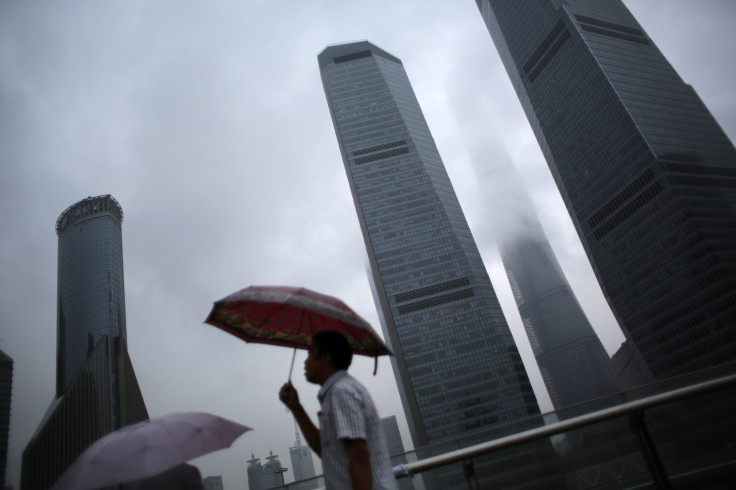China Unveils Fresh Support Measures As Economy Shows Renewed Weakness

(Reuters) - China announced fresh support measures on Friday for its slowing economy after data showed a worrying drop in bank lending and foreign investment growth falling to a two-year low.
The central bank said it would lend 50 billion yuan ($8.1 billion) to banks at discounted rates to allow them to re-lend the money to farmers and small businesses -- areas of the economy that are usually short of cash.
The latest attempt to ease policy in a "targeted" manner to help the most vulnerable sectors came as data showed that foreign direct investment (FDI) in China rose just 1.7 percent in 2014, the slackest pace since 2012.
The world's second-largest economy drew a record $119.6 billion worth of FDI last year, slowing markedly from growth of 5.3 percent in 2013, the ministry of commerce said.
Investment flows into China are an important gauge of the health of the world economy, and are also a good indicator of where capital is flowing within the Chinese economy.
"The priorities of macro policy this year is to let the economy shift its gears without it losing its growth speed," said Zhu Zhixin, a vice director at China's powerful economic planner, the National Development and Reform Commission (NDRC).
Hurt by a housing slump and waning investment and manufacturing growth, China's economy likely expanded 7.2 percent in the Oct-Dec quarter from a year earlier, its weakest rate since the depths of the global financial crisis, according to a Reuters poll of economists.
That means China's full-year growth may have undershot the government's 7.5 percent target in 2014 and would mark the country's worst economic performance in 24 years. China is scheduled to release its fourth-quarter growth report on Jan 20.
With analysts betting on more gloom in 2015, with growth possibly dipping below 7 percent, China is widely expected to loosen policy further in coming months to stoke activity.
"We expect this kind of targeted easing to continue," said Ting Lu, an economist at Bank of America-Merrill Lynch in Hong Kong. "We expect three cuts in the reserve requirement ratio (RRR) this year, totaling 150 basis points."
The RRR refers to the amount of deposits that banks must set aside as reserves at the central bank and is adjusted by the PBOC to control the level of liquidity in the banking system.
A cut in a reserve ratio cut would give banks greater capacity to lend, but many market watchers question if businesses will want to borrow more money as economic conditions deteriorate and if banks want to risk more bad loans.
UNLEASHING CONSUMPTION POTENTIAL
The downbeat investment report came a day after data showed Chinese banks issued far fewer loans in December than expected.
That suggested a surprise interest rate cut in November, the first in over two years, has not spurred demand for credit, and that banks remained reluctant to lend.
Lu from Bank of America-Merrill Lynch said he believed RRR cuts are imminent because bets for a weaker yuan this year have led fewer firms to sell their dollars to the central bank for yuan, thereby reducing the supply of yuan and liquidity in the market.
The PBOC did not comment on China's liquidity conditions on Friday, saying only that its re-lending exercise was aimed at lowering firms' financing costs, and that it had pumped a record 99.4 billion yuan into the economy via "re-lending" last year.
The focus on weaker parts of the economy was echoed by the NDRC, which said in a statement that the country must "unleash its consumption potential" this year.
Even as it vowed to stoke demand, the NDRC said it had approved 53.1 billion yuan of new railway projects, indicating that authorities were still counting on investment to remain a mainstay driver of the economy.
"China has very big volumes of retail sales, but the per capita figure is quite small," Zhong Shan, a vice minister at China's trade ministry, told reporters at a briefing. "So China still has great potential in expanding domestic consumption."
© Copyright IBTimes 2025. All rights reserved.





















